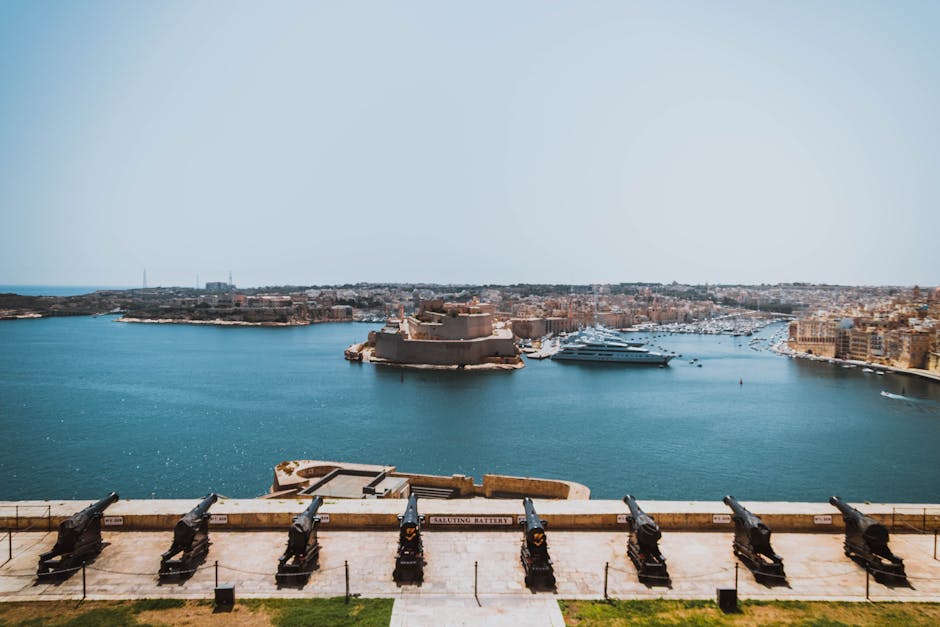Kekuatan Militer Iran vs Israel: Siapa Lebih Siap Hadapi Perang Panjang?
![[FULL] Kekuatan Militer Iran vs Israel: Siapa Lebih Siap Hadapi Perang Panjang? [FULL] Kekuatan Militer Iran vs Israel: Siapa Lebih Siap Hadapi Perang Panjang?](https://images.pexels.com/photos/17838918/pexels-photo-17838918.jpeg?auto=compress&cs=tinysrgb&h=650&w=940)
Kekuatan Militer Iran vs Israel: Siapa Lebih Siap Hadapi Perang Panjang?
The Middle East. Just the name conjures images of shifting sands, ancient history, and... well, a whole lot of tension. Two nations often at the center of that tension are Iran and Israel. For years, whispers (and sometimes outright shouts) of potential conflict have echoed through the region and the world. The big question on everyone's mind: If things escalated into a prolonged war, who would be better prepared? Let's dive into a head-to-head comparison, leaving the political rhetoric aside and focusing purely on the military might and strategic advantages (or disadvantages) each nation possesses.
A Numbers Game: Peeling Back the Layers of Military Strength

Okay, let's get the raw numbers out of the way first. Size matters, right? Well, not always, but it's a good starting point. Comparing military strength involves looking at active personnel, reserves, equipment inventories, and the often-opaque defense budgets.
Iran: The Land of Manpower and Quantity
Iran boasts a significantly larger active military personnel compared to Israel. Think of it as a vast ocean of soldiers, ready to be deployed. They also maintain a sizable reserve force, ready to be called upon in times of national emergency. When it comes to hardware, Iran leans heavily on quantity over cutting-edge technology (though they're certainly trying to catch up – more on that later!). Their arsenal includes a large number of tanks, artillery pieces, and a growing, albeit somewhat aged, air force. Much of this equipment is domestically produced or sourced from Russia and China.
Israel: Quality Over Quantity, Backed by Innovation
Israel, on the other hand, operates with a smaller, highly trained, and technologically advanced military. Their active personnel might be fewer, but they are exceptionally well-equipped and drilled. Israel's air force is arguably one of the most sophisticated in the world, armed with advanced fighter jets, precision-guided munitions, and state-of-the-art surveillance capabilities. They also have a potent armored corps and a technologically superior navy (relative to Iran). Israel's military prowess is driven by relentless innovation and a strong focus on cyber warfare and intelligence gathering.
Air Power: The Skies of the Middle East

Control of the skies is crucial in modern warfare. Let's see how these two stack up in terms of aerial dominance.
Iran's Air Force: A Legacy of the Past, Looking to the Future
Iran's air force is a mixed bag. A significant portion of its fleet consists of older aircraft, some dating back to the pre-revolution era. Maintaining these aging aircraft has been a constant challenge, often relying on creative (and sometimes questionable) methods of sourcing spare parts. However, Iran is actively working to modernize its air force, acquiring new aircraft from Russia and developing its own domestic capabilities. Their development of drones, in particular, has been a growing concern in the region.
Israel's Air Force: A Technological Powerhouse
Israel's air force is renowned for its advanced technology, skilled pilots, and proactive doctrine. They operate a fleet of modern F-35 stealth fighters, F-15 Eagles, and F-16 Fighting Falcons, giving them a significant technological edge. Israeli pilots undergo rigorous training, and their air force has a proven track record of successfully conducting complex missions. Their air defense systems, like the Iron Dome, further strengthen their ability to protect their airspace.
Naval Strength: The Persian Gulf and Beyond

Control of the seas is also vital, particularly in a region so reliant on oil exports. The Persian Gulf and the surrounding waters are crucial waterways.
Iran's Navy: Asymmetric Warfare and Coastal Defense
Iran's naval strategy focuses on asymmetric warfare. They don't necessarily aim to directly confront a conventional navy head-on. Instead, they rely on a large number of small, fast attack craft, submarines, and anti-ship missiles to harass and disrupt enemy naval operations. They have also heavily invested in mine warfare capabilities, which could pose a significant threat to shipping lanes. Their strategy is geared towards denying access to the Persian Gulf and potentially disrupting oil tanker traffic.
Israel's Navy: A Small but Sophisticated Force
Israel's navy is smaller than Iran's but is equipped with advanced missile boats, submarines, and patrol craft. Their submarines, in particular, are considered a crucial component of their strategic deterrent, reportedly capable of launching nuclear-capable cruise missiles. Israel also possesses advanced naval technology, including sophisticated radar and electronic warfare systems.
Ground Forces: The Art of Land Warfare

Ultimately, any prolonged conflict would likely involve ground forces. How do the two nations fare on land?
Iran's Ground Forces: A Large and Diverse Army
Iran's ground forces are large and diverse, comprised of both the regular army and the Islamic Revolutionary Guard Corps (IRGC). They possess a significant number of tanks, armored personnel carriers, and artillery pieces. However, much of this equipment is aging and may lack the technological sophistication of Western counterparts. The IRGC, in particular, plays a key role, acting as a parallel military force with its own ground, air, and naval units. They are also heavily involved in supporting proxy forces in other countries in the region.
Israel's Ground Forces: Technology, Training, and Experience
Israel's ground forces are smaller but highly trained and equipped with advanced technology. They operate modern tanks, armored vehicles, and artillery systems. Israeli soldiers undergo rigorous training, and their military has extensive combat experience, gained through decades of conflict. They also benefit from advanced intelligence gathering capabilities and strong logistical support.
Missile Capabilities: A Game of Range and Precision

Missiles, both ballistic and cruise, are a significant factor in modern warfare. Both Iran and Israel possess substantial missile arsenals.
Iran's Missile Program: Reaching Out and Touching Someone (Far Away)
Iran has invested heavily in its missile program, developing a wide range of ballistic and cruise missiles capable of reaching targets throughout the Middle East and potentially beyond. Their missile arsenal is a key component of their deterrent strategy, allowing them to project power and threaten potential adversaries. While the precision of some of these missiles may be questionable, the sheer number and range pose a significant challenge. Iran is also actively developing more advanced missile technology, including solid-fuel missiles and hypersonic weapons.
Israel's Missile Defense and Offense: A Multi-Layered Approach
Israel possesses both offensive and defensive missile capabilities. Offensively, they have Jericho ballistic missiles, capable of reaching targets far beyond the region. Defensively, they have developed a multi-layered missile defense system, including the Iron Dome (for short-range rockets), David's Sling (for medium-range missiles), and Arrow (for long-range ballistic missiles). This multi-layered defense system provides Israel with a significant advantage in intercepting incoming missiles, although it is not foolproof.
Cyber Warfare: The Invisible Battlefield

Modern warfare isn't just about tanks and planes. Cyber warfare is increasingly important, targeting critical infrastructure and disrupting enemy communications.
Iran's Cyber Capabilities: A Growing Threat
Iran has made significant investments in cyber warfare capabilities in recent years. They have been linked to numerous cyberattacks targeting government agencies, financial institutions, and critical infrastructure in various countries. Their cyber capabilities are constantly evolving, and they are becoming increasingly adept at conducting sophisticated cyber operations. Their motivations are often a mix of espionage, sabotage, and political disruption.
Israel's Cyber Warfare: A World Leader
Israel is considered a global leader in cyber warfare. They have a highly skilled and well-resourced cyber warfare unit, capable of both offensive and defensive operations. They have a strong focus on protecting their critical infrastructure from cyberattacks and are also adept at conducting offensive cyber operations against their adversaries. Israel's cyber capabilities are a key component of its national security strategy.
Strategic Considerations: More Than Just Military Might

Military strength is only one piece of the puzzle. Strategic considerations, such as geography, alliances, and economic factors, also play a crucial role.
Iran's Strategic Advantages and Disadvantages
Advantages: Large population, strategic location bordering several countries, control of key waterways like the Strait of Hormuz, significant oil reserves, and a network of proxy forces in the region.
Disadvantages: Economic sanctions, aging military equipment, limited access to advanced technology, and internal political divisions.
Israel's Strategic Advantages and Disadvantages
Advantages: Strong alliance with the United States, advanced military technology, a highly skilled and experienced military, a robust economy, and a strong intelligence apparatus.
Disadvantages: Small geographic size, lack of strategic depth, surrounded by potentially hostile neighbors, and reliance on foreign military aid.
So, Who Would Win a Prolonged War? It's Complicated...

There's no simple answer. A prolonged war between Iran and Israel would be incredibly complex and destructive. It's highly unlikely to be a clear-cut victory for either side.
Here's a simplified breakdown:
a. Israel's Technological Superiority: Israel's advanced military technology, particularly its air force, missile defense systems, and cyber warfare capabilities, would give them a significant advantage in the initial stages of a conflict.
b. Iran's Asymmetric Warfare and Endurance: Iran's strategy of asymmetric warfare, its large military manpower, and its ability to endure economic sanctions would make it a difficult opponent to defeat in a prolonged conflict.
c. The Role of Proxy Forces: The involvement of proxy forces, such as Hezbollah in Lebanon and various militias in Syria and Iraq, would further complicate the conflict and potentially escalate it into a regional war.
d. International Involvement: The involvement of other countries, such as the United States, Russia, and other regional powers, would also play a crucial role in the outcome of the conflict.
The Bottom Line: Prevention is Better Than Cure (Especially Nuclear Cure!)

Ultimately, a war between Iran and Israel would be a disaster for both countries and the entire region. Diplomatic solutions, de-escalation efforts, and a commitment to peaceful resolutions are essential to prevent such a conflict from occurring. While analyzing military strengths is a necessary exercise, the real focus should be on preventing the need to ever test them in a prolonged and devastating war. Innovation should be focused on peace-building, not just weapon-building.